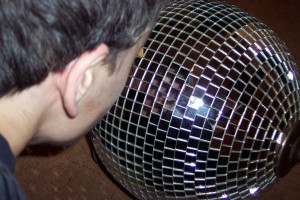You would think that your constantly-eating teenage son would come running when he hears the words, “Dinner’s ready!” Especially since you have resigned yourself to only prepare the foods that he will eat because he is thin and needs all the food he can get. So he doesn’t have to worry about coming to the table and seeing something he might not like. Why then, when you say, “Dinner’s ready!” does he growl in response, “That fast?!” This is after the five-or-ten-minute transitional warning that you have learned to always give him. You always say, “Dinner’s in five [or ten] minutes!” and make sure that he hears you, so that he can prepare himself mentally for the transition and finish up what he’s doing. Yet every day, without fail, he will sneer, “That fast?!” when you tell him that dinner is ready, even though he has had his advance notice.
And every day, you model a more appropriate response for him. “Okay, Mom” or “Be right there!” You tell him that he should respond more politely to someone who prepares a meal for him. But somehow the appropriate responses don’t seem to register. He doesn’t get it. For years now, he has said, “That fast?!” in a negative tone, and it just seems to be a habit for him. And you worry about him doing that at any friend’s house where he might actually be invited to have dinner. You worry that in the “politeness vs. difficulty with transitions” fight, politeness will always lose.
But, much to your surprise, the day will come when you will say, “Dinner’s ready!” at his bedroom door, and he, seated at his computer desk, will politely say, “One moment, please.” And you will just about fall over dead from the shock. And when you recover, you will think that he really must be up to something in there to be that polite. So you poke your head in and check, and he’s not doing anything out of the ordinary. So you praise him for being polite, but you don’t want to overdo it or that will exasperate him and then he will never be polite again. And you can’t help but wonder if this is just a one-time deal, if he had by chance recently watched a movie that featured that line when a character announced that a meal was being served and the scene was still fresh in his mind.
And the next day when you tell him that dinner’s ready, he says nicely, “Okay, Mom.” And you thank him and then just stand there in the hallway and think, Wow! He’s getting it! And the next day when you tell him he says, “I’ll be there in a minute.” And you start to hyperventilate because he’s been polite three days in a row. And the fourth day, you tell him when dinner’s ready, and he growls at you, and you realize that you had forgotten the 5-10 minute “warning.” So at least now you know that your transitional cue really helped, even though all this time it appeared to not make a difference. The next day, you remember the “warning,” and you tell him that dinner will be ready in five minutes. And he helps.To set. The table. And after you pick yourself up off the floor, you realize that even though he still needs help with transitions, he is finally learning to respond politely. Yeah. He’s getting it.


